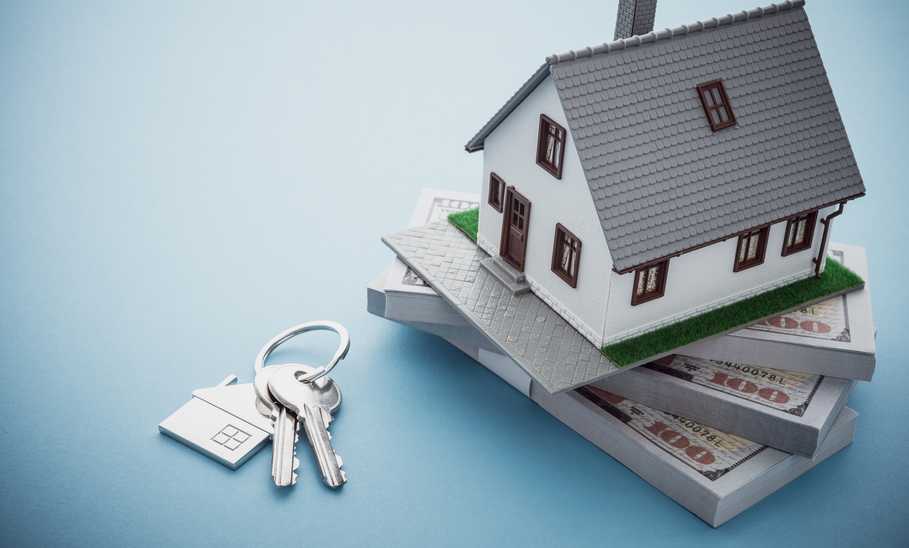How Soon Can You Refinance a Mortgage?

Our evaluations and opinions are not influenced by our advertising relationships, but we may earn a commission from our partners’ links. This content is created by TIME Stamped, under TIME’s direction and produced in accordance with TIME’s editorial guidelines and overseen by TIME’s editorial staff. Learn more about it.
When interest rates drop and you only recently purchased your home, you may wonder how soon you can refinance your mortgage. The answer depends on your mortgage type, because each has different rules. Some mortgages will allow you to refinance nearly immediately, while others have a waiting period.
Keep reading as we explore how soon you can refinance different types of mortgages, reasons you might want to do so, and some important things to consider before getting started.
Often you can refinance immediately when you have a conventional loan. Some lenders have rules in place that require you to wait six months before refinancing with the same lender, but you’re free to refinance with other lenders at any time. Be sure that your current lender doesn’t charge a prepayment penalty because this could affect the cost of refinancing.
However, there is one exception to this rule: cash-out refinances. This is where you refinance your mortgage with a larger loan amount. The difference is then given to you as a lump-sum payment. To go through with a cash-out refinance, you must own the home for at least six months or have inherited the home through death or divorce. Most lenders will also require you to have at least 20% equity in the home before starting a cash-out refinance.
The Federal Housing Administration (FHA) backs home loans and has different refinancing rules. The procedures that apply to you will also depend on which of several types of FHA loans you have; each has its own rules regarding how soon you can refinance.
Using an FHA streamline refinance can help move the process along quickly. This type of refinance doesn’t require an appraisal and entails limited paperwork. However, you must wait at least 210 days (about seven months) since you closed on your original mortgage and have made at least the past six payments on time.
If you have an existing FHA loan and are looking to refinance into another FHA loan to take advantage of lower rates or change your loan term, your best bet is an FHA simple refinance. While the FHA doesn’t limit how long you must have had your previous mortgage before refinancing, some FHA-approved lenders put limits in place. Additionally, the FHA requires you to have made at least six on-time payments in a row. If you had your mortgage for fewer than six months, all payments must have been made on time.
If you currently have a non-FHA loan but want to refinance it into an FHA loan, this can be done with an FHA rate-and-term refinance. The FHA doesn’t have a waiting period to refinance, but some lenders might have their own requirements. You also must have made at least the past six payments on time. If you’ve had the mortgage for fewer than six months, all payments must have been made on time.
When you do an FHA cash-out refinance, your loan amount will be for a greater amount. The difference between the two loans will be given to you as a lump sum of cash. This is similar to a conventional cash-out refinance.
You must have owned and lived in the home for the past 12 months. You’ll also be required to have had your existing mortgage for at least six months, and all mortgage payments across the past 12 months must have been made on time. If you’ve had the current mortgage for fewer than 12 months, each payment must have been made on time.
VA loans, backed by the United States Department of Veteran Affairs, have a few refinance options with slightly different requirements.
With an interest rate reduction refinance loan, you must have held your existing mortgage for at least 210 days and made at least six consecutive on-time payments. These loans are ideal for many people because they don’t require an appraisal, and the paperwork is minimal.
VA cash-out refinancing works much like other cash-out refinances. To be eligible you must wait at least 210 days after closing your existing mortgage and have made at least the past six payments on time.
USDA loans, backed by the United States Department of Agriculture, have three different refinancing options available.
When you use a USDA streamline refinance, you must be current on your existing loan for the past 12 months. The benefit of using this refinance is that no appraisal is needed.
As with a USDA streamline refinance, you won’t need an appraisal, plus the paperwork is limited. To be eligible for a streamline assist refinance, you must have made at least 12 consecutive on-time payments.
Unlike the previous two refinancing options, a USDA non-streamline refinance will require an appraisal before closing. However, it only dictates that you have made on-time payments for the past six months.
Jumbo loans help borrowers access loan amounts greater than conventional loan limits. Most lenders will allow you to refinance anytime, but it will be up to the individual lenders. Lenders that offer jumbo loans typically have stricter loan requirements than for conventional loans.
Refinancing your mortgage can offer many benefits. However, when deciding if a refinance is the best move, it’s important to understand if it will help you reach your financial goals.
There are many reasons why people decide to refinance their mortgage. Here are some of the most common ones.
Possibly the most prevalent reason for people choosing to refinance their mortgages is that interest rates have dropped. They understandably want to take advantage of this to reduce the interest they pay over the life of their loan.
Lowering your interest rate will also decrease your monthly mortgage payment. This will help free up your budget for other financial goals.
If you took out a conventional loan and used a down payment of less than 20%, you’ve been paying for private mortgage insurance. However, if you’ve built up a significant amount of equity, you can refinance to have it removed. This will reduce your monthly mortgage payment.
If you have an FHA or a USDA loan, mortgage insurance is typically a requirement. However, you can refinance to a conventional loan and have the mortgage insurance removed as long as you have 20% equity in the home.
If you want to speed up the process of paying off your mortgage, you may want to refinance from a 30-year mortgage to a 15-year mortgage.
If you originally took out a variable-rate mortgage to take advantage of lower rates, you may want to switch to a fixed-rate mortgage, giving you a more predictable monthly mortgage payment.
If you’ve gained a significant amount of equity in your home, you may want to tap into that for other financial needs. Maybe you want to pay off high-interest credit card debt or complete a home improvement project.
When considering a refinance, here are a few things that might dissuade you.
You must pay closing costs each time you refinance your mortgage. According to an Assurance IQ study, average closing costs are between 1.2% and 2.47% of the loan amount. This means that if you’re borrowing $300,000 for a home, you could pay as much as $7,410 each time you refinance. However, Freddie Mac estimates the average closing costs on a refinance to be approximately $5,000. Either way, it’s not cheap. Before moving forward, determine if the benefits outweigh the cost.
Some lenders will charge a prepayment penalty if you pay off your mortgage early, increasing the cost of your refinance. Before starting the process, check your existing contract to see if a prepayment penalty is included. If so, decide if it will be worth the extra cost.
Unless you have certain government-backed loans, you’ll need to qualify for your new loan whenever you refinance. Being approved could be more difficult if your credit has changed for the worse.
If you aim to take advantage of lower interest rates and refinance from one 30-year mortgage to another, you’re resetting the repayment clock. This means it will take longer to pay off the loan, which increases the overall cost.
Because refinancing a mortgage has closing costs, it will not always make sense financially. Here’s an example.
Assume you took out a $300,000 30-year mortgage with an interest rate of 5.75%. Your monthly principal and interest amount would be $1,750.72.
However, after 10 years your mortgage balance has dropped to $249,360.45, and you decide to refinance. You don’t want to reset the time it takes to pay off your loan, so you choose a 20-year mortgage with an interest rate of 4.20%. Refinancing your loan will drop your monthly payment to $1,537.48.
To refinance you’ll need to pay closing costs of 2%, which comes to $4,987. This means your break-even point for refinancing would be 23.4 months.
What if rates continue to drop, and a year later you decide you want to refinance for a second time for another 20 years? Your mortgage balance is now $241,227.99. Twenty-year mortgage rates have fallen to 3.75%, and you can reduce your monthly principal and interest payment to $1,430.21. Once again, you’ll need to pay closing costs of 2% ($4,824.56). It will now take you 45 months before you break even.
As you can see, refinancing costs money each time, and the breakeven point continues to increase. Before you refinance, it’s important to consider your savings, the cost, and whether you plan to stay in the home long enough to make it worth it.
It’s important to consider other options before choosing to refinance to see if they are better for reaching your financial goals.
If your goal is to access the equity in your home, you may find that the cost of a refinance outweighs the benefit. If so, you could consider a home equity loan or home equity line of credit (HELOC). You’ll be able to access the cash you need without the expense of refinancing.
If you want to lower your monthly mortgage payment, you can use a mortgage recast. You’ll make a large lump-sum principal payment, after which your loan will be newly amortized. The lower principal balance will reduce your mortgage payment.
Refinancing your mortgage can reduce your interest rate and monthly payment, allowing you to repay your mortgage sooner. It can even help you access the equity in your home. Unfortunately, it’s not free, so before you choose it, you need to understand the cost.
Depending on your loan and lender, you may be able to refinance your mortgage immediately. However, some will require you to wait as long as 12 months from your current loan's closing date.
You can refinance your mortgage as often as you want. Whether you should, however, depends on the cost.
If you’re refinancing with a conventional loan, you’ll likely need a credit score of at least 620, according to Rocket Mortgage.
The information presented here is created by TIME Stamped and overseen by TIME editorial staff. To learn more, see our About Us page.



